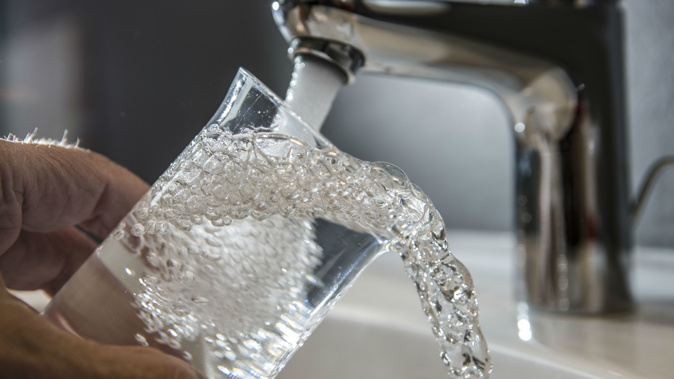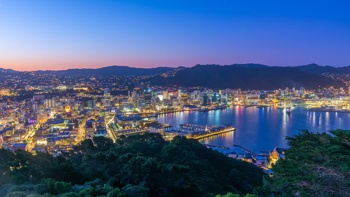
The government is considering making all drinking water in New Zealand permanently treated.
Mandatory chlorination is one of 51 recommendations included in the final report from the government's inquiry into last August's Havelock North water contamination.
The Attorney-General has released the final report today, following hearings held earlier this year.
The hearings focused on systemic failures in the country's drinking water sector, which contributed to last August's water contamination crisis.
In August 2016, the Hawke's Bay town's drinking water supply was contaminated with campylobacter after a period of heavy rain washed sheep faeces through the Te Mata aquifer.
The campylobacter outbreak struck down more than 5000 people with gastro, hospitalised 45 and has been linked to three deaths.
It caused the town's economy to suffer and sparked national debate about the safety of untreated water.
In May, the first part of a government inquiry found there was a lack of a response plan, aquifer maintenance records and compliance duties, supervision by mid-level council managers and meaningful collaboration and co-operation between Hastings and Hawke's Bay Regional councils.
In it's second report, released Wednesday, the inquiry panel has called for all councils to treat their drinking water immediately, until law changes make it compulsory.
Exemptions to permanent chlorination can be made, but only in "very limited circumstances".
The report says 80 per cent of the country's population lived in areas where stronger water standards were required.
The panel wants a new independent Drinking Water Regulator set up, to oversee the whole sector.
It states councils will face tougher penalties if they have unsafe drinking water.
The inquiry says these recommendations should be done urgently, as the risks of not doing so are simply too great.
It says they will substantially improve the safety of drinking water both in Havelock North, and elsewhere in New Zealand.
Attorney-General David Parker said the report made for sobering reading.
"(It) highlights the quality of drinking water in New Zealand is often inadequate, and that regulation and enforcement have been poor," he said.
"We must do better."
As much as 9000 kilometres of water pipes from as far back as the 1950s needed replacing around the country, at a cost of $2.2b, according to the report.
The Minister of Health, David Clark, says the report raises serious concerns about oversight and infrastructure that can be laid at the feet of the previous National government.
"The inquiry indicates that while drinking water standards instituted in 2007 represented international best practices at the time, since then New Zealand's standards have not kept up with the world," he said.
Mr Clark said he would have an urgent report prepared for Cabinet before Christmas, focusing on implementing many of the recommendations.
- additional reporting NZN
KEY RECOMMENDATIONS
* Water across New Zealand should be universally treated, including a residual disinfectant in the reticulation:
* A dedicated, independent and well-resourced drinking water regulator to be established;
* Water suppliers should be licensed;
* The Ministry of Health to put in a clear enforcement policy for safe drinking water;
* The "secure" classification of bores, which gives a misleading impression to the public they are safe, should be abolished;
* DHBs should establish joint working groups responsible for oversight of drinking water safety in their region;
* A comprehensive review of design, construction, supervision, operation, inspection, maintenance and renewal of all bores that draw water from the ground.
THE RESPONSE:
"The quality of drinking water in New Zealand is often inadequate, and that regulation and enforcement have been poor. We must do better." - Attorney- General David Parker
"Overall, this report raises serious concerns about oversight and infrastructure. We will be pursuing solutions to address any problems identified." - Health Minister David Clark
* Cabinet to be briefed on planned response by Christmas.
Take your Radio, Podcasts and Music with you









